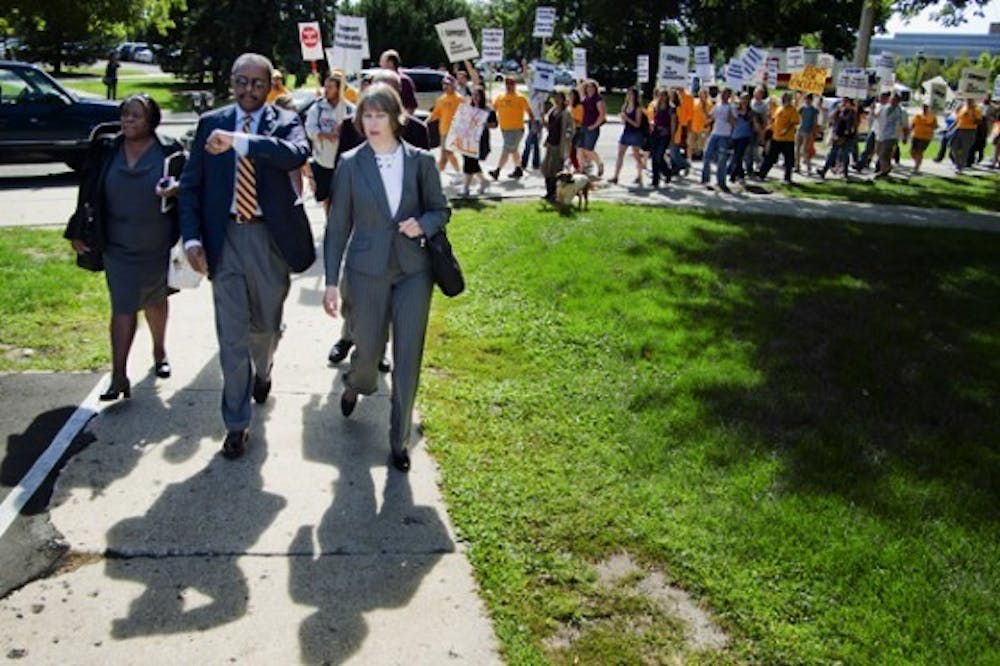EDITORIAL: A call for polite, productive negotiations
After rocky contract negotiations between the administration and Faculty Association in 2011, we hope to see improved relations – from both sides – this time around.
Three years ago, the Faculty Association and the administration repeatedly failed to reach an agreement on a contract. The battle lasted nearly eight months.
The disagreement led to a faculty work stoppage before the beginning of the fall 2011 semester. Central Michigan University claimed the strike was illegal, filing for an injunction while demanding faculty return to work.
The contract was settled four months later, costing the university a damaged relationship with the faculty association, a blemished public reputation and $77,000 in legal fees.
That contract expires in June.
Although both faculty and administrators have high hopes for more positive interactions this time, it will take increased consideration, communication and patience from both sides.
Reviewing salaries, health and retirement benefits, promotions, tenure, departmental bylaws, emergency leaves, reorganizations, disability and grievance procedures is a tedious, but necessary task that calls for collaboration.
After reaching an agreement in 2011, faculty and university officials – including President George Ross – made the commitment to come together to improve that relationship.
In August, then FA President Laura Frey said it was important the administration remain aware of problems that existed with communication, transparency and an equity of support to faculty.
“The fundamental issues present throughout the 2011-12 academic year have not yet been made right by the administration,” Frey said in an email to Central Michigan Life in 2012. “There were inequities in terms of treatment to faculty as well as violation of faculty constitutional rights demonstrated by this administration in early fall 2011.”
In November 2012, faculty derided Ross’ leadership in a survey. Rating his effectiveness on a scale of 1-5, 191 rated him either a one or two and only 47 rated him a three or higher. Earlier that year, 19 departments endorsed an academic senate vote of no confidence against Ross.
In response, Ross made a commitment to improve relations – creating the committee for shared governance and offering to attend department meetings to further open communication.
His administration also said it would provide written reports for the Academic Senate, while still remaining focused on working toward the completion of a master plan and enrollment management strategy.
CMU and the Faculty Association have had three years to repair the damage. Time will tell if the efforts were successful.
When the faculty and administration disagree – especially in such a public manner – it casts a shadow on our university as a whole.
While negotiations are necessary, when the disagreements reach the public, it tells current and prospective students, as well as their families, that CMU is in turmoil.
Ultimately, when these negotiations turn ugly, many will question if CMU is the best place for new faculty members to come to work and for students to receive a quality education.
If we want to earn a reputation as a “first-choice university,” CMU needs to begin by creating a peaceful environment for collective bargaining and contract negotiations.
When faculty members and administration refuse to budge – and the result is a work stoppage – it interferes with our ability, as students, to learn.
Together, as a whole, CMU has a responsibility to balance the long-term impact these negotiations have on our reputation as well the impact it has on the educational experience.
It seems, for now, that both the administration and faculty have the right attitude heading into negotiations, but we can only hope – for the sake of our faculty, students and our university – that these collaborative efforts will make an impact.




